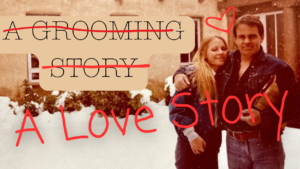One part, but not the only part, of creativity is something airy and fragile. The muses are picky, and they visit only in very particular circumstances. In the book, The Birth of Tragedy, Friedrich Nietzsche classified this more emotional, passionate, fickle side of the creative process as “Dionysian,” named for and represented by Dionysus, the Greek god of wine, theater, ecstasy, and lunacy.
But, art must also have this other component, which Nietzsche called Appolonian after Apollo, that is more structured and disciplined. Apollo was the god of reason, aesthetic order, healing, and light. In this dichotomy, Apollo represents the part of creation that is consistent. Apollo and Dionysus had different mothers, but they had the same father, Zeus, making them equally powerful.
Many people become artists because they are possessed by Dionysus. I think everyone gets visited by the muses and they call on you to become a vessel that brings a divine message or image or song to life in our mortal, material world. But if this artist doesn’t have habits in place or the skill necessary to act on their inspiration, then it ends there. This artist is possessed by Dionysus, but she doesn’t have the structure of the archer Apollo to hold onto inspiration long enough to turn it into something that others can experience. Her creative home in her mind is like a tent, easily blown away by circumstance.
Another common issue is an excess of structure and perfectionism, or being too possessed by Apollo. This writer has high standards for herself. She worries constantly about how her art will be perceived. She often wants to be seen as an artist, or as a genius, but may lack the courage to create something strange, risky, sexual, dark, human, or honest. This paralyzes her. If she does produce work, it comes across as stale and corporate. The artist is possessed by Apollo, but she has built so much rigid infrastructure, so many harsh standards in her mind, that there is no space left for inspiration to flow freely. Her creative home in her mind is like a marble corridor with so many pillars of belief, so many columns to navigate, that one cannot walk in or out.
The artist who hopes to create every day, or at least on a consistent basis, must build a place in their creative mind where both Dionysus and Apollo can feel at peace so that the brothers can live and create together in harmony. Architecture by Apollo, interior design by Dionysus.
I write everyday except Sundays, unless I’m sick or traveling or something else comes up, but I am pretty consistent. And that was something I tried to do for a long time and couldn’t but now I have achieved that by building solid infrastructure of healthy habits around one particular creative space. I’ve been doing this for about four months and before that, I would only work on my personal writing projects on weekends.
Gustave Flaubert said: “Be regular and orderly in your life like a bourgeois, so that you may be violent and original in your work.”
For a long time, I tried to keep daily word count goals. But I failed so often that I eventually just declared that goal to be too lofty and gave up. I would keep weekly word count goals or NO word count goals, and just write in jumps and starts when inspiration struck (not a great way to actually finish anything).
For work, I write and edit for work for an SEO agency called Inkless, and I also freelance as a writer, and it’s very common for those of us who are creative for a living to say: “I write all day for clients. It’s very hard to find time and inspiration to write for my own projects. I’m on my laptop all day, then I don’t want to sit on my laptop more to write my novel.” There’s some truth in that. There’s actually some truth in every excuse that you can make. But at some point I recognized that it isn’t uniquely hard for me to be a creative. It’s hard for everyone. It’s hard to be creative on a daily basis. It’s hard to write when no one is going to read it, no one cares, no one gave you a deadline, and you’re not making any money from it. So I’ve stubbornly decided to not complain about that anymore– I’m very fortunate to work as a writer and editor; It’s my dream job and I’m not going to debase my career by using it as an excuse.
But there is a unique challenge that comes with this line of work. When you are a professional writer or a professional artist of any kind, your work is typically task-based instead of hourly. I like this about writing, I can work early and get all my stuff done, I don’t always need to ask for days off so long as I finish all my tasks beforehand, and it’s rewarding to check stuff off as I go throughout my day. But sometimes, the hardest part about this lifestyle, for me, is waking up to get started.
In my early 20s I had a job that started at 4:30 am and if I was late, they docked my pay for the whole month. And you might say, “But when you do the morning shift, at least you’re done with work by 9 am.” But nope, I worked from four to eight, then I had a second job that started at nine. On my best months, I made around $1,800, between the two jobs. And I wanted that money! So even if I was out the night before, even if I hadn’t really slept, even if I was sick, I was awake and teaching at 4:30. I see videos of entrepreneurs who brag about getting up at 5 am, and I always think, there are working people who do that every day for an entire career and they don’t make TikToks about it, but I will say that when no one is waiting for you to wake up, and when you can do your work technically at any time of the day or night, it is really hard to wake up early and get started. My half-asleep self can very easily convince me that I can just work from 2 pm to 9 pm; I don’t need to get up! But even if you have a freelance job or a task-based job, I don’t think it’s completely healthy to work inconsistent hours. If you don’t maintain a regular working schedule, your work starts to become reactive instead of proactive.
On the days you slept in, you’re stressed out responding to emails, trying to catch up, then the day ends and you get tired, or, sometimes, you procrastinate all afternoon, and you don’t end up actually finishing your stuff for the day, because regardless of whether or not you wake up, time will continue without you. And I know people who prefer to work at night. I know expats in Europe who work a California nine-to-five which is a Spain six-pm-to-two-am, and they say, “Hey, for a California salary in Andalucia, I’ll take it.” But personally, I like to work “normal” hours. I like to feel like I’m a part of the community wherever I’m living; a part of the patterns of life and the schedules and the habits. Plus, when I wake up early, I feel good. I can get ahead at work, and I can get some private time in the morning to write for myself. So, to clarify, my “secret,” if you can call it that, to writing every day, is waking up early and writing in the morning before everybody else wakes up.
There’s just one problem. I am so bad at waking up early. Just ask my mom who used to wake me up when I was a teenager. Or my friends, who, when they read an early draft of this essay, asked me why I was lying! If I don’t wake myself up, I will easily sleep for twelve hours or more. I turn off alarms in my sleep, and I make up reasons to go back to bed, especially if I can complete my work at any time of day. I saw a freelancer ask about this on Twitter, “How do you make yourself get up if there’s no one waiting on you to perform a certain schedule?” And people who, I would assume, have never been freelancers before, responded with things like “I meditate in the morning and have some green tea. :)” Whoever wrote that, just know that I’m upset with you. Here are some real answers for that person who was having trouble waking up early, and here is how I manage to get up early and write every day even though no one asked me to.
Most weekdays, I wake up at five am and I write from about 5:30 until about 8:00 to be honest; I usually shoot for 7:00 but I often get excited about what I’m working on and I just stay there and write until 8:00. If you are also an artist, then you know what it’s like to get sucked into your work.
I convince my body to let me get up at 5:00 by doing this:
- I put my alarm in the living room. The other side of my room doesn’t work; I will still turn it off and fall asleep on the floor and wake up two hours later feeling like a bag of bones. My apartment is relatively small, so I leave my bedroom door open and put my phone on the other side of the apartment to charge. I usually chill in bed and listen to the alarm for a few minutes until I’m awake enough to go turn it off, and at some point in the long walk from the bed to the phone, I usually decide that I will actually wake up and not just turn off the alarm and go back to bed. And I did say usually.
- This next step was key for me. I have super dry eyes in the morning. The ophthalmologist said that I don’t completely close my eyes when I sleep, and it made it so hard for me to wake up because along with my brain waking up, I also had to keep blinking and wait for my eyes to work. So I got saline, it was 90 cents, and I put it in my fridge, and when I wake up early I waterfall that shit into my eyes and they go from being raisins to grapes and it feels amazing.
- At this point, I’m still half asleep, so it’s good to have the same routine while your body wakes up. So every day, I brush my teeth, take out my overnight heatless curls, and I use these “brightening” skincare products to wake up my skin, like an exfoliator and a Vitamin C serum that I massage into my face to get the puffiness and tiredness to drain. It sounds simple, but waking up is uncomfortable, so giving yourself little treats like a serum that smells good or a cappuccino can make you excited to get up and oh no I sound like the people who suggested green tea and meditation.
- To help my sleep schedule, I don’t drink on weeknights, if I do it’s just a little, I don’t get drunk anymore, and I don’t smoke. Those things just mess with my sleep schedule; I go to bed but I don’t think I fully enter REM so I wake up still tired.
- A lot of the time, the hardest part about getting up early is going to bed early. I try to go to bed at 9 pm, I almost never succeeed at this, but if I’m asleep by ten then I’m okay.
- Every Sunday, I do some meal prep. Not full meals, but I make some staples like rice, lentils, beans, roasted veggies, hardboiled eggs, overnight oats, stuff that’s easy to make and healthy that I can grab and eat either in the office or for breakfast. This way, I don’t have to cook in the morning when I’m tired.
- I’ve tried laying my clothes out the night before, I know some people find that makes their morning routine easier. I’m pretty exhausted by the end of the day so a lot of the time I don’t have the energy to do that, but it can help for sure.
- I like to write in a nice environment, so I sit down with my food, my coffee, my plants, a candle, and I now that I’ve created a nice infrastructure for myself, it’s time to be possessed by Dionysus. Just kidding, it’s usually time to scroll on social media or play word games until my coffee kicks in and THEN it’s time to be possessed by Dionysus.
- Up until now, I have been making an appeal to Apollo. I’ve been strict with myself, and I’ve been imposing discipline and structure on my behavior. Now, it’s time to, as the poets say, let that shit go. Tell your critical inner voice to take a break. You can feel guilty and inadequate the rest of the day if you want, but for the next hour, you’re a genius. You are but a vessel for the words of the gods. Release yourself from your standards and perfectionism and let yourself be a child, who just wants to have fun and be creative, because here’s a secret about discipline that I don’t see mentioned enough, if you don’t enjoy your work, at least a little bit, then you aren’t gonna do it. Remember, no one is forcing you. It sounds rough to wake up early and it is, but I do it every day because I love writing. It’s fun!
- If I don’t know what to write, I keep a notebook for that occasion. I have a notebook dedicated just to my personal projects and whenever I have ideas for essays or novels or stories throughout the day, I jot them down in there. I don’t like to do it in my phone because I am easily distracted by it, but usually when I work, I have a few notebooks open on either side of me and when I think of something, I can just jot it down there without having to open a new tab on my computer or take out my phone or something. I’ve noticed that I have my best creative ideas when I am:
- Walking, especially with music
- On the train or some sort of public transport, again, especially with music
- In nature
- When I am consuming someone else’s work that I think is great (this could be a movie, a book, an essay, a podcast, you can find these little diamonds of inspiration in everything)
- Sometimes when a certain work or piece of writing is bad, I feel inspired to make something with better execution, or to identify why it was bad and form a critique of it.
- When I’m talking to my husband or other writers I work with and we have one of those great, artistic, philosophical conversations.
- When I’m caffeinated I start to feel like I have a lot to say, so I love to work in cafes and I’m fortunate to live in a city that has tons of gorgeous cafes.
So, if I want to have better creative ideas, I aim to maximize the amount of time that I spend doing those things. I read more. I join a book club or writing club. I walk to work.
- After writing, I get ready and go to the gym. I sit at a desk all day, so having that time to let my energy out and stretch and run and get a good sweat going; it’s very important. And it’s good brainstorming time as well. I dislike the distinction made between artsy people and athletic people. Being physically active is important for everyone, and creativity is important for everyone, too.
- After getting home, I shower, get ready, and pack a lunch. At this point I am usually rushing because I typically wrote for too long in the morning. I take the train to the office with my husband and then we work for too damn long! I’m kind of kidding. We have been working long hours lately, but I just keep reminding myself that we’re planting the seeds that will hopefully benefit us and our coworkers for years to come, if fate is on our side. Plus, and I really mean this, I love my job. I work with some really smart, inspiring clients. I have coworkers who are fantastic writers who I learn from every day, and I get paid to do what I love, so the long hours are very rewarding, especially long-term, even if sometimes they get tiresome. So I usually get home around 7:30-8:30 and I shower and go to bed, but I do think that if I were more efficient in the morning, then I wouldn’t get home so late, so that is something I’m working on that I would like to improve.
Now, when I wrote my novel, I wasn’t getting up so early. Instead of daily word count goals, I kept weekly word count goals, and I wrote just on Sundays. I was able to finish a novel that way, and at that time, I found it much more effective. Creativity is all about finding what works for you personally.
Listen, I can become very fearful of Time. Birthdays are usually quite anxiety-inducing. The unstoppable march of time is like the sun; it affects everything, but you don’t want to stare at it and examine it for too long because it becomes painful and harmful. But I have noticed that there are ways to manage this fear of time and ways to make it worse. If I have habits that are completely in service of the present, but maybe damaging long term, like addictions or listlessness, then time becomes my enemy. But if I have habits that are in service of the woman I want to become, then Time becomes my ally; it becomes precisely the thing that brings me closer and closer to all the goals I dream about.
But creativity, like everything, is about balance. An overly Dionysian existence can be damaging, but so can an excessively Apollonian existence. The creative process isn’t just productivity, it’s also inspiration. So, yes, write. And write and write and write, but don’t forget to live.
Dear reader, may the muses pay you a visit. May they stick around for lunch. Go get drunk with Dionysus and in the morning, you and Apollo can clean the lipstick off the wine glasses and don’t worry: I already know you’re one of God’s favorites. You were born a writer after all.
___________________________
For writing and editing services, contact Inkless.
Watch this blog post as a video:





